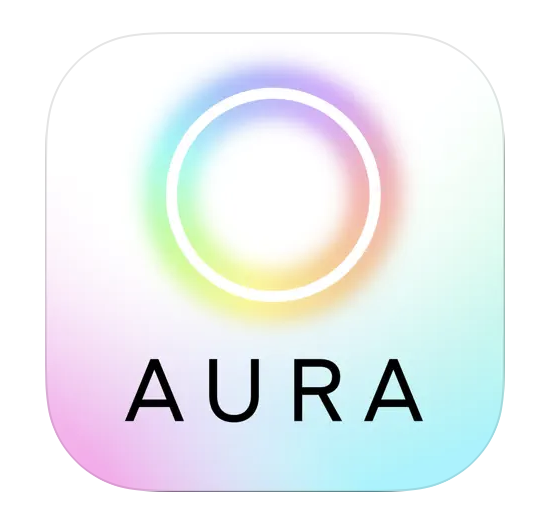Gummies, tea, chocolates, tinctures… CBD can be found in practically everything, including in your tub (spiked bath bomb, anyone?). And at a time when stress and anxiety are sky-high, all these options can seem like a panacea.
In fact, CBD—or cannabidiol, a substance derived from the Cannabis sativa plant—may do more than just chill you out. Ongoing research examining its “anxiolytic” (anti-anxiety) and “panicolytic” (anti-panic) properties suggests CBD could help with deeper issues like panic disorder, PTSD, generalized anxiety, social anxiety, and OCD. Researchers have also studied its anti-inflammatory properties in relation to certain kinds of chronic pain and inflammatory diseases.
Not to be confused with THC, the stuff in cannabis that gets you high, CBD is available over the counter in most states, where it’s legal (exceptions: South Dakota, Idaho, and Nebraska—sorry, Cornhuskers!). So…harmless, then? A chocolate-flavored way to neutralize that edge your prescription Rx doesn’t?
Hold on to your tinctures, friends, because CBD supplements aren’t for everyone—and could even create problems.
How CBD Works in the Body
Before we delve into how CBD and meds interact, let’s first look at what this stuff really does.
In theory, CBD is a gift to your body’s endocannabinoid system—a critically important system that isn’t talked about very much. The cardiovascular and respiratory systems get all the fame, maybe because they have clear-cut functions. The endocannabinoid system acts more like a central computer.
“A good analogy is to think about a car,” says Jordan Tishler, M.D., professor of internal medicine at Harvard Medical School and president of the Association of Cannabis Specialists. Your car’s central computer tracks everything from fuel efficiency to tire pressure and is constantly making tiny adjustments for better operation.
GOTTA READ: The Best Products to Manage Your Mental Health
To do this in the body, your endocannbinoid system has receptors that send and receive information to tweak all kinds of bodily functions, like helping down-regulate stress or boost immune reactions. “Endocannabinoid receptors are in every system, from your lungs, kidneys, and bone marrow to your immune response, reproductive health, and pain modulation,” Dr. Tishler says. “They affect pretty much everything in the body you can name, by optimizing the way every system works.” CBD, in whatever form you choose, is meant to optimize the way those receptors work.
Awesome, right? Except that CBD products don’t work the same way for everyone, says Dr. Tishler. For example, one person might feel relaxed when using CBD, but someone else taking the same amount in the same form feels…nothing. More research is needed to discover how to standardize the effects of these products.
But I Still Want to Give CBD a Try!
Here’s the (second) catch: Even if you happen to be somebody who experiences a glow-up with CBD, it could interact negatively with other medications you’re taking.
Research in the journal Medical Cannabis and Cannabinoids lists 57 medications that are potentially impacted by cannabinoids, whether taken by prescription or over the counter. This includes everything from cigarettes and vaping (nicotine might change how cannabinoids are metabolized) to pain pills and heart medications.
GOTTA READ: Overstimulated? 8 Simple Ways to Lighten Your Overload
“Like many drugs, CBD is broken down by liver enzymes,” says Matt Glowiak, Ph.D., an addiction counselor and professor of social and behavioral science at Walden University in Chicago. “That may cause interference with certain prescribed medications, which can limit the drug’s potency or its effects altogether so the drug won’t work the way it should, or even at all. Or CBD may amplify the effects of the medication. Either way, this can have significant implications.”
Mental health meds that CBD can affect, says Dr. Glowiak, include antidepressants, antipsychotics, and benzodiazepines. For example, with CBD in the mix, you might feel extra drowsy. Or—and this is clearly the bigger danger—your meds may become less effective. This may cause you to think they aren’t working, when the issue is really the CBD that’s running interference. Big problem.
Signs That Your Meds + CBD = No Good
One of the trickiest aspects of CBD, as with any over-the-counter supplement, is that it’s not regulated by the FDA. That means you put your trust in the manufacturer that what’s on the label is indeed what’s in the product. Sometimes it’s true, but many studies have shown that supplement labels of any type can be misleading or even downright inaccurate.
Then there’s the question of potency, given all of the CBD delivery systems available. Take a CBD gummy. It could do nothing, or it could be more potent than pills or oil, especially if dosage isn’t listed. Generally, 40 mg is a good starting dose, says Dr. Tishler, but if what you’re taking is listed incorrectly, you could be getting more than you think.
CBD can also have side effects, but because they’re so wide-ranging, you might not connect them to those chocolates you took last night. Research suggests the most common symptoms for CBD tend to be:
- Confusion
- Dizziness
- Rapid heartbeat
- Digestive issues
- Shortness of breath
- Daytime sleepiness or fatigue
At the same time, reactions like these could be caused by something completely unrelated—allergies, for one, check off a bunch on that list. If you’re all gunked up, Dr. Tishler suggests keeping a log of what you’re feeling when, then experiment with halting CBD to see if the symptoms stop, too.
Bottom line? Experiencing these symptoms doesn’t automatically mean you need to ditch CBD, but you may want to change the time of day you take it. For instance, if you take your prescription mental health meds in the morning and have the biggest effect right then, he recommends trying CBD in the late afternoon or evening. Before playing around with timing, though, or even buying any CBD products, have a chat with your doctor about the best way to proceed.
For more practical ways to stay ahead of your mental health, join our email list.
CBD Effects on Stress, Anxiety, and Sleep: Moltke, J., Hindocha, C. Reasons for cannabidiol use: a cross-sectional study of CBD users, focusing on self-perceived stress, anxiety, and sleep problems. J Cannabis Res 3, 5 (2021). https://doi.org/10.1186/s42238-021-00061-5
CBD and Anxiety: Blessing EM, Steenkamp MM, Manzanares J, Marmar CR. Cannabidiol as a Potential Treatment for Anxiety Disorders. Neurotherapeutics. 2015;12(4):825-836. doi:10.1007/s13311-015-0387-1
CBD and PTSD: Elms L, Shannon S, Hughes S, Lewis N. Cannabidiol in the Treatment of Post-Traumatic Stress Disorder: A Case Series. J Altern Complement Med. 2019;25(4):392-397. doi: 10.1089/acm.2018.0437
Where CBD is legal: https://worldpopulationreview.com/state-rankings/cbd-legal-states
Safety of CBD (1): https://www.mayoclinic.org/healthy-lifestyle/consumer-health/expert-answers/is-cbd-safe-and-effective/faq-20446700
Safety of CBD (2): Kocis P, T, Vrana K, E: Delta-9-Tetrahydrocannabinol and Cannabidiol Drug-Drug Interactions. Medical Cannabis and Cannabinoids 2020;3:61-73. doi: 10.1159/000507998






